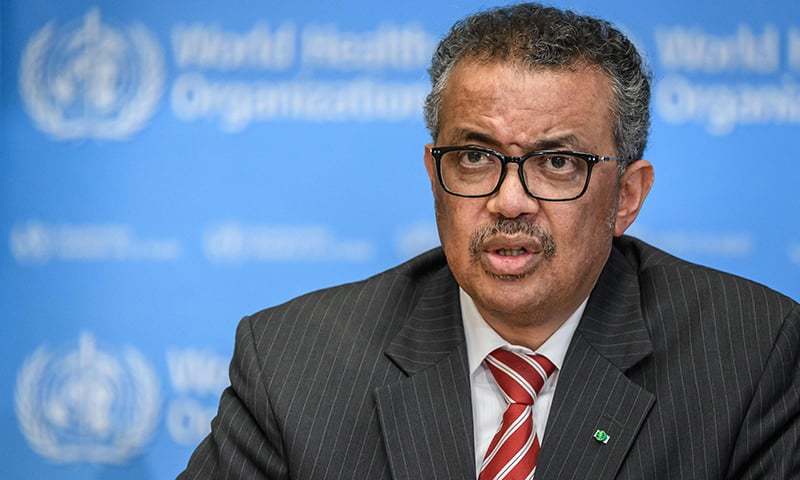GENEVA: World Health Organisation members agreed on Monday to strengthen the global body at the heart of the pandemic response and give it a more secure financial base from which to tackle future health crises.
Many of the details of the concrete measures had to be left to a future date, as members continue to debate how much power to cede to the UN body.
But WHO chief Tedros Adhanom Ghebreyesus hailed the resolution passed on the last day of the UN health agency’s annual meeting of its 194 member states as “historic”.
“The world needs a stronger WHO at the centre of the global health architecture,” he said.
A year and a half after the start of the Covid-19 pandemic that has killed more than 3.5 million people, member states agreed to strengthen the organisation at the heart of the global response to the crisis.
The 14-page resolution adopted on Monday vowed among other things to remove the uncertainty around the organisation’s funding.
Member states committed to “ensure the adequate, flexible, sustainable and predictable financing of WHO’s programme budget”.
Only about 16 percent of the agency’s budget currently comes from regular membership fees. The rest comes from voluntary contributions that are heavily earmarked by countries for particular projects.
Tedros pointed out that even in the midst of the crisis, low and uncertain funding levels had meant programmes were being planned “in a debilitating cycle of financial ebb and flow”. “WHO cannot grow stronger without sustainable financing,” he said in closing remarks to the 74th World Health Assembly, which has been held virtually over the past week.
“We cannot pay people with praise.” With Monday’s resolution, countries also agreed to “strengthen WHO’s capacity to rapidly and appropriately assess disease outbreaks” of possible global concern.
But they put off deciding most of the steps required, and some members are resisting moves to hand more power and independence to the WHO for fear it might encroach on their sovereignty.
They decided to create a new working group to study and streamline numerous recommendations presented by three independent panels, and create concrete proposals for next year’s assembly to consider.
The expert panels had painted a bleak picture, finding that countries and institutions had been woefully unprepared to deal with Covid-19.
They called for a total overhaul of the global alarm system, and for a stronger, more independent WHO to help avert future pandemics.
Monday’s resolution called on all countries to increase their ability to detect new threats and to communicate such threats effectively at home and abroad.
To ensure all nations do their part, the resolution asked Tedros to consider creating a pilot project in which countries would submit their pandemic preparedness plans to regular peer reviews by other members states — just as they undergo reviews of their rights situations before the UN Human Rights Council.
The resolution stopped short of explicitly backing the experts’ recommendation to hand the WHO broader powers to launch investigations or communicate about health threats without waiting for a green light from the countries concerned.
